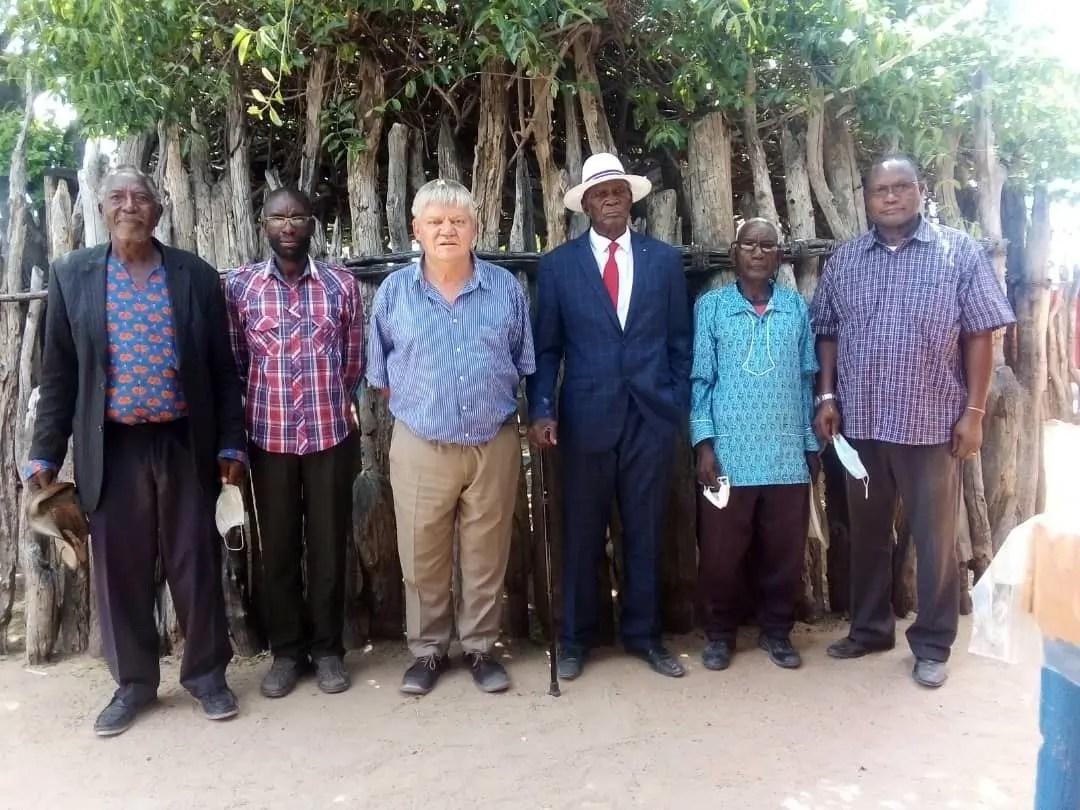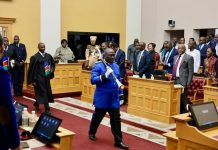Africa-Press – Namibia. WHEN you travel off the beaten track on the back roads where the majority of Namibians do backbreaking work with the sunrise on their backs, returning only when the sun sets amongst the Makalani palm and Mopani tree forest, there is always a remarkable reminder of the Namibian genesis to nationhood.
In the rush of traffic and the bustle in towns and cities, it is easy to forget the deep values and traditions that solidly keep the Namibian peace, uphold institutions and respect for authority, despite the distorted picture of a small minority in all corners of the world who never walk the long and lonely roads, but let their fingers travel in a make-believe world on phone keyboards.
It is also a reminder that most of the frontier people, from Ngoma to Epupa, for most of the year work on farms, at houses, keep factories going and are business people and entrepreneurs, selling anything from vegetables to cell phone credit on street corners, and only return to their homes a few times a year where their families wait with great expectation and anticipation of the world of lights and wonder where they come from.
A spontaneous turn-off from the main road between Omuthiya, the Gondwana King Nehale lodge, which is the recent gateway into the mysteries of the northern regions close to Oshivello, to a non-descriptive farm road marked with a white flag, stops at the gate of the He-He Na farm where a surprise wedding announcement will be taking place.
The surprise is even greater when one of Namibia’s foremost and formidable women, the only woman member of the Constitutional Committee, member of Cabinet, Attorney-general and former Secretary-general of Swapo, Pendukeni Ithana, steps out and hugs the visitor and journalist, Chris Jacobie, like a lost son, imploring him to stay for the ceremony that he was never prepared for.
A proud mother and still extremely attractive woman is like a mother hen around the daughter that is getting married in a few days in a traditional wedding at her farm.
The remarkable Namibian Independence and democratic genesis is pushed to the background, but its wedding season in the North and the marriage ceremonies are sacred. The marriage is a testament to how far Namibia has travelled on the road to nationhood.
Ithana left the country as a young woman who went for training to fight for Independence. She returned and served three presidents as minister after she fought fiercely for the rights of women to be included in the Namibian Constitution, and sometimes clashed with the elder men of her own party.
When she retired to her farm, Namibia celebrated 32 years of constitutional democracy and now her daughter marries in a free and independent Namibia in a traditional Awaambo marriage.
Not too far away, on the western side of Outapi, another chance meeting takes place the next day on the way to a visit to Chief Mukulu.
A water stop at a lodge near Outapi allows finding the Inspector-General of the Namibian Police, Lieutenant-General Sebastian Ndeitunga, a former shepherd on a farm in the south, a veteran soldier and later Chief of the Namibian police, who is doing administration work sent from headquarters.
He also is in the North to arrange the traditional wedding of his son just off the road near Outapi’s Boabab landscape.
It’s another road to freedom, liberation, democracy, reconciliation and return to traditional values around weddings amidst the Covid-19 pandemic that threatened to crumble the traditions dear to people and communities, unsuccessfully, and another remarkable experience of a road less travelled and easily ignored, but refuses to go away, because of the bonds of communities and culture.
An official welcoming by the Head of the Ombalantu Traditional Authority, Chief Oswin Mukulu, and his councillors the next day confirms the strength of the social fabric in the harsh plains and forests of the communal and traditional authorities.
Chief Mukulu asks Informanté and its journalists to please take one message to the nation. “If you love her no more, take her back to her parents instead of killing her, abusing her or mistreating her,” the Chief said, referring to the unacceptable gender-based violence incidents.
“This must stop, and we Namibians must talk to each other about the serious business of marriage.”
He asked Trustco’s Head of Media, Chris Jacobie, to please use all tools available on various platforms, Radio, Websites and Facebook pages of Trustco, to enforce the message of respect and returning girls if there are problems or unhappiness in marriages.
Chief Mukulu said that he as traditional leader and parent is not happy with the level of degradation of the sacred bonds that he observes and hears about daily. The Chief is convinced that people get married without proper preparation, or lack information about the person they are marrying, while others are simply dishonest in their intentions.
“Marriages are breaking up at an alarming rate, some immediately after the wedding feast,” said Mukulu.
He further said: “As parents we advise our children to prepare well for marriage instead of rushing things, making vows in court and in churches, and then failing to abide by those vows, ending up killing, abusing or mistreating their spouses.”
He singled out men for special advice. His authoritative advice as tribal chief and parent is: “If you no longer love her, don’t harm her. Rather, take her back to her parents.”
Chief Mukulu also spoke about the festive season, imploring travellers to do so safely.
“People have started travelling to be with their relatives and friends. They must do so safely. Loss of life on the roads must be avoided at all costs. We lose too many lives this time of the year, a time that is supposed to be the time of joy,” he said.
He further said that members of the Ombalantu traditional community are scattered all over Namibia, in neighbouring countries and even overseas.
They ought to find time, at least once a year, to visit and support their relatives and the community.
Jacobie informed Chief Mukulu that he was impressed to see people wearing their masks, practicing social distancing and using hand sanitizers in conformity with the Covid-19 regulations.
An equally surprised Chief Mukulu told the two journalists that people are respecting the instructions of the President, Dr Hage Geingob, and the Minister of Health, Dr Kalumbi Shangula, and many lives are spared by abiding by the rules of councillors and elders.
Before he bade goodbye and good luck, and after serving traditional Owambo chicken, Mahango pap and spinach, the Chief instructed his guests and travellers not to only wear masks at his homestead, but on the road as well, so as not to affect other unsuspecting Namibians.
When the sun sets over Ombalantu, the words of Chief Mukulu still echo: Be obedient to authority and always reach out to the less privileged.
“Asking the name of a beggar is already a great act of respect and humanity,” the chief greets before wishing the two travellers a safe journey.
For More News And Analysis About Namibia Follow Africa-Press






